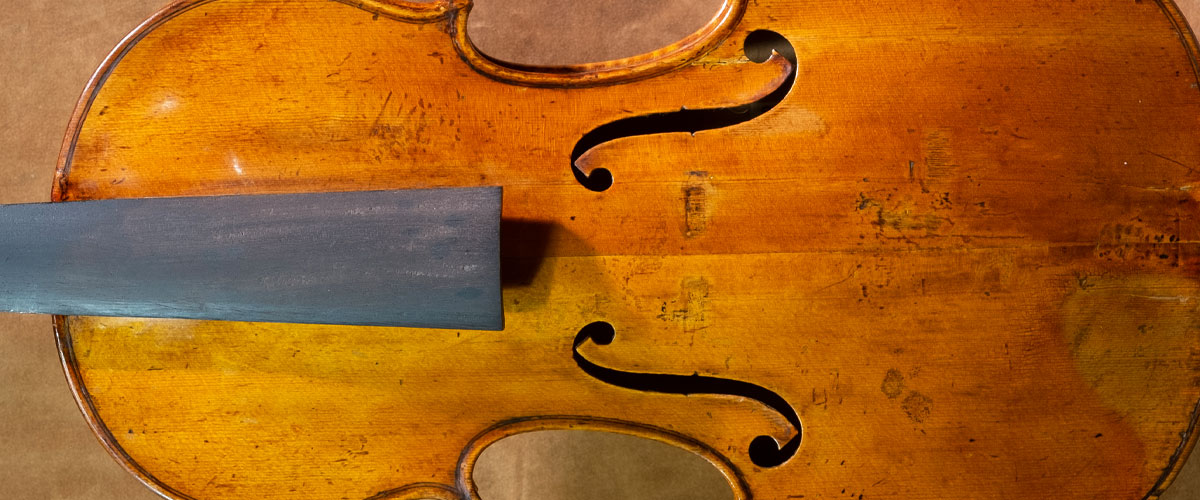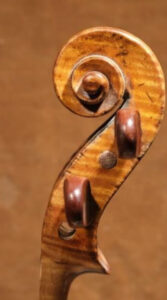Questions about Violins of Hope?
Email us at gh@jccchicago.org or call 847.763.3507.
She was born in 1925 as Valeria Teichner in Hungary, but in 1944, Auschwitz, was named A 12763. She started violin lessons at age 6 and stopped playing only when life became unbearable. On the cattle train to Auschwitz, 1944, she forgot her violin. Getting off the train she went through a “selection” where she lost her mother. When sent to the music barrack, she cried, unable to play. She was sent back to the laundry barrack, only to go through another “selection” and end up in Gorelitz, another hard-labor camp, to work in a munition factory.

 The sadistic capo there used to play his violin every evening. He played well, she said. On Christmas eve, all prisoner-musicians were to play and sing for the commanders. She sang Lorelei, accompanying herself on the violin. The next day, the officers’ cook threw a piece of cake for her over the fence. Terrible crime. The capo sentenced her to be hanged in Gross-Rosen, the main camp. When the car came for her, the capo called out: “geigerin heraus”, (violinist – out!), but then changed his mind, hit her hard on her face and let her stay. She was liberated by the Soviets May 8, 1945. She soon met with Sandor Fisher and married him.
The sadistic capo there used to play his violin every evening. He played well, she said. On Christmas eve, all prisoner-musicians were to play and sing for the commanders. She sang Lorelei, accompanying herself on the violin. The next day, the officers’ cook threw a piece of cake for her over the fence. Terrible crime. The capo sentenced her to be hanged in Gross-Rosen, the main camp. When the car came for her, the capo called out: “geigerin heraus”, (violinist – out!), but then changed his mind, hit her hard on her face and let her stay. She was liberated by the Soviets May 8, 1945. She soon met with Sandor Fisher and married him.
Sandor Fisher was born in 1919 in Romania. He started violin lessons at age 6 and studied singing and acting for 12 years. At 18 he changed his name to Farago Sandor, when Jews were persecuted, and he was a part of the local opera company. When the situation worsened and his father was conscripted to hard labor, Sandor replaced him, and his violin went along to the work camp. Soon Sandor was ordered to play entertain the officers during dinner and so to smuggle some leftovers for his friends. In 1944 he managed to escape the labor camp and join the Soviets. He stayed in Hungary for some years until emigrating to Israel, marrying Valeria and raising a family of three daughters, grandchildren, and grand grandchildren. All along, said his daughters, he never parted with his violin. He played to the end of his days.